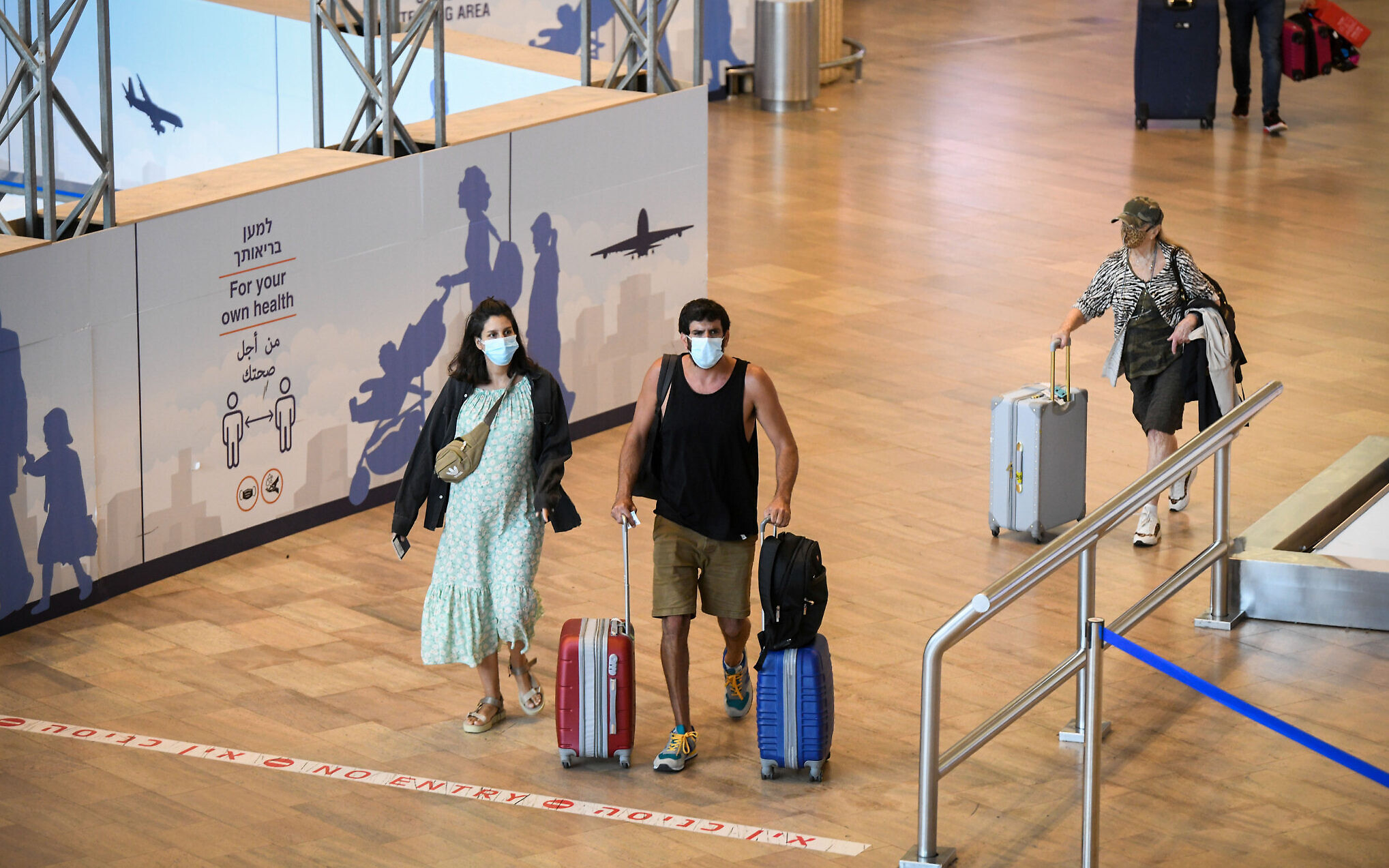For the first time since the start of the pandemic, in March 2020, Israel today opens its borders to tourists vaccinated or recovered from covid-19 with the hope of refloating a key sector for the country, and in particular for Jerusalem, where more than 30% of its economy depends on foreign tourism.
The tourist must have received the second dose of one of the vaccines approved by the World Health Organization (WHO) or a booster dose in the six months prior to entering Israel, a requirement that will prevent an initial flood of travelers. Those who have recovered from covid-19 in the last six months will be able to enter with a single dose.
All travelers must show a negative PCR test, carried out within 72 hours prior to the flight, and undergo another upon arrival at the airport in Israel and remain in quarantine for the first 24 hours until the negative result of the second PCR is obtained. In addition, tourists vaccinated with Sputnik must undergo a serological test to corroborate their level of antibodies.
CREATIVE SOLUTIONS
“During the coronavirus pandemic, interest in visiting Israel has remained high and we have worked hard to find creative solutions and facilitate the safe return of tourists,” the Israeli Tourism Ministry said in a statement today.
After surpassing the record of 4.55 million foreign tourists in 2019, representatives of the sector consulted by EFE do not believe that these figures will be reached until 2023, but they do look to 2022 with the hope that it will be the year of a gradual recovery.
Authorities hope to save the Christmas tourism campaign, as thousands of people flock to Bethlehem in the occupied West Bank every year, an area that will also benefit, as the gateway for its visitors is the Israeli Ben Gurion International Airport in Tel Aviv .
After the initial success of its immunization campaign, Israel planned last spring to reopen tourism, but had to delay those plans in the face of the arrival of the contagious delta variant of covid-19 that triggered a fourth wave and made Israel the first. country in the world to massively put the booster dose of the vaccine.
With the fourth wave under control, Israel resumed in September its pilot plan for the arrival of organized tour groups, mainly from the European Union and the US, “a success”, according to the Ministry of Tourism, which today encouraged “tourists from all over the world. world to make their reservations and enjoy unique, varied and safe tourist products “.
EMPTY JERUSALEM
Jerusalem, which is home to monuments with more than 3,000 years of history and sacred places for Muslims, Christians and Jews, is the main attraction of the country and through which almost all of the foreign tourism that lands in Israel passes.
“80% of the tourists that the city of Jerusalem received before the pandemic are foreigners and more than 30% of the local economy depends directly or indirectly on the sector,” said the Deputy Mayor of Jerusalem, Fleur Hassan-Nahoum, today in a remote meeting with the press.
The streets of the Old City – normally crowded with tourists – have been almost empty for a year and a half; The queues to visit places such as the Church of the Holy Sepulcher, the Wailing Wall, the Esplanade of the Mosques or the Mount of Olives have disappeared.
Those who have suffered the most are the hundreds of small businesses, such as cafes, restaurants and souvenir and craft shops, especially in the Old City, whose income depends entirely on foreign visitors.
The deputy mayor was skeptical of what she considered “a partial reopening”, since many countries are still not applying the third dose to the general population, or vaccinating children, which prevents all those who received the second dose from visiting Israel more than six months ago or to entire families.
OXYGEN FOR THE SECTOR
Despite these obstacles, for David Tucker, president of the Jerusalem Hotel Association, the opening of borders to foreigners is “good news” that will allow many accommodations that have been closed for a year and a half, such as the Ramada hotel that he directs, “get back in business and get jobs back.”
Tucker is confident that Jerusalem hotels will reach 2,000 tourists a day next year, to regain the 4,000-5,000 daily guest mark between 2018 and 2019.
From the Abraham Group, an Israeli company that has cheap hostels and organizes excursions with Israeli and Palestinian guides, they have already noticed an increase in reservations, especially from Europe, its director Yaron Burgin confirmed to EFE, although still far from the 300,000 annual clients pre-pandemic.
“It’s just the beginning. But after this journey through the desert, a little water makes a difference,” said Burgin, who has weathered the pandemic by focusing on Israeli tourism, more interested in beach spots.

